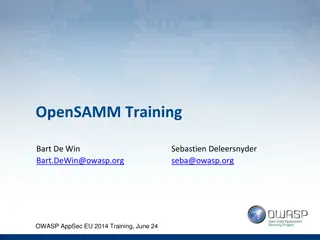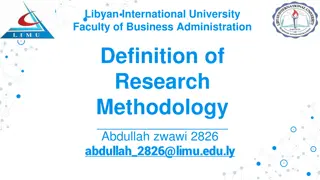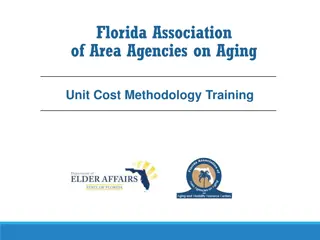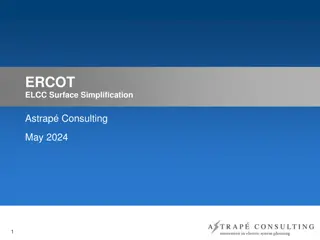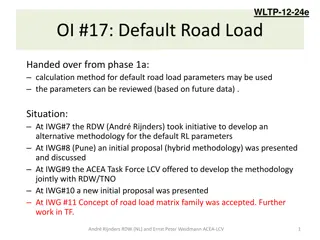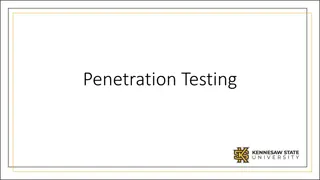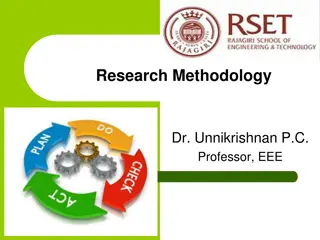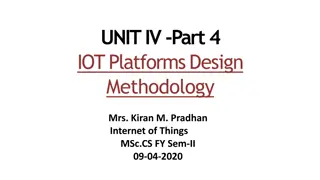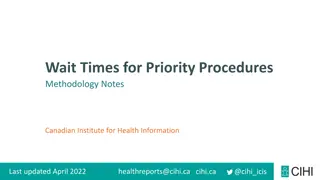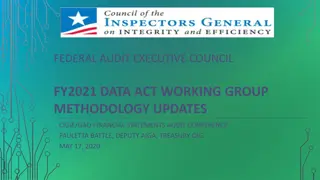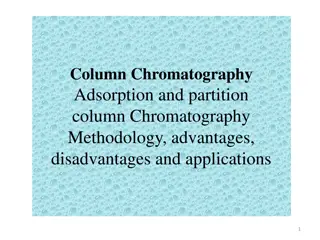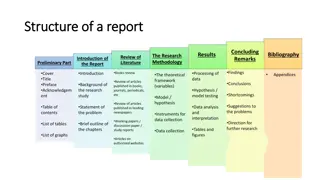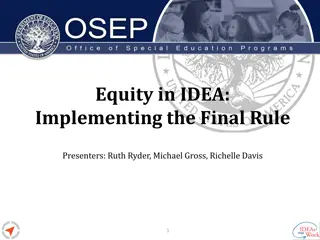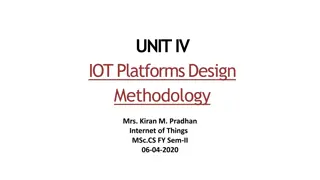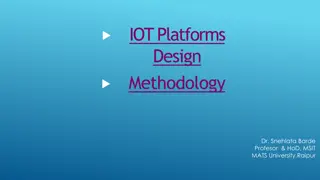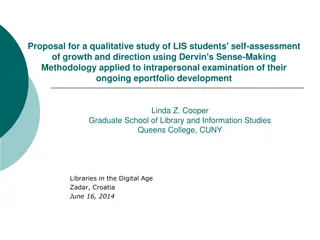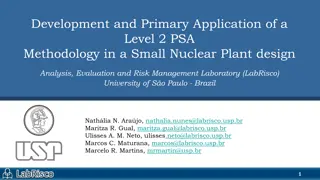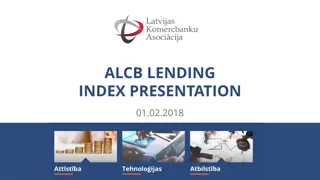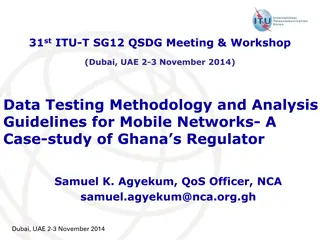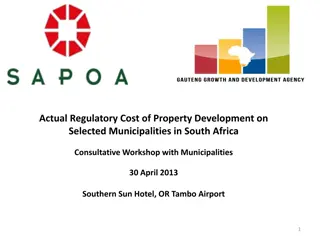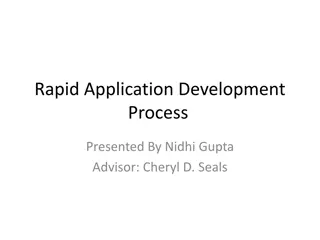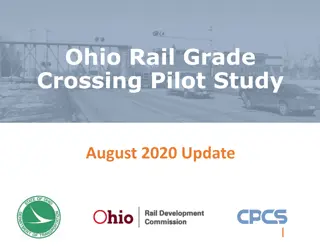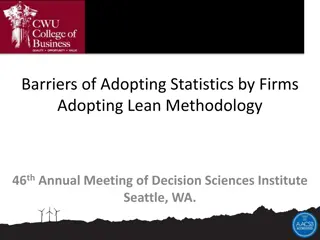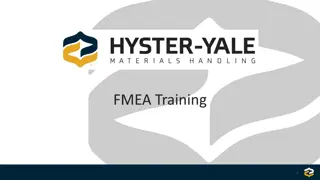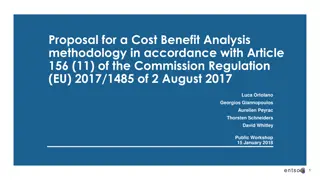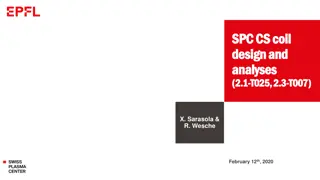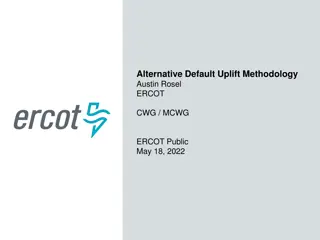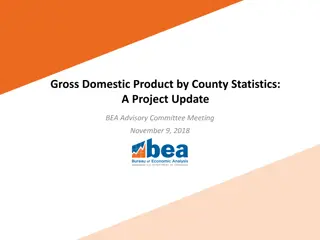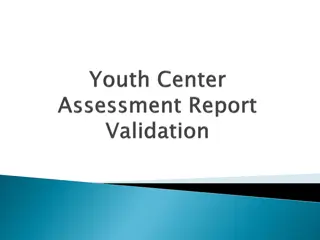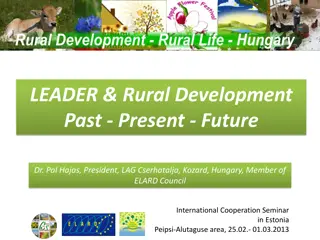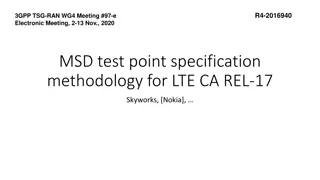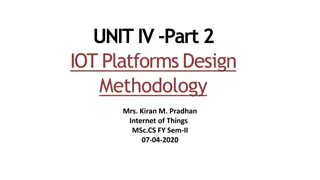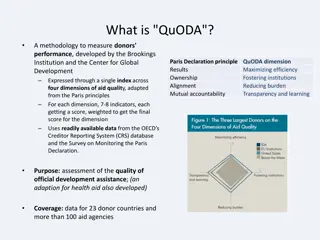Autonomous Conjunction Assessment Methodology Among Satellites
Methodology for Collision Avoidance (CA) among constellations of autonomously-controlled satellites is crucial for protecting assets in space. From straightforward protection against dead satellites to active coordination for maneuverable payloads, the range of primary-secondary CA possibilities is
1 views • 12 slides
Understanding Q-Methodology: A Stata Analysis Overview
Q-Methodology is a research approach focusing on subjective viewpoints. This article discusses the history, goals, and steps involved in a Q-methodology study using Stata programs. It covers the development of a concourse, creation of a Q-sample, Q-sorting activities, and analysis and interpretation
5 views • 46 slides
Practical Application of OpenSAMM Methodology in Software Development
Discussing the practical implementation of OpenSAMM methodology in software development, focusing on its application to different stages of the SDLC. The training session aims to address challenges faced in secure software development, with interactive discussions and best practices shared by indust
5 views • 105 slides
Research Methodology
The Research Methodology course is a mandatory requirement for HST trainees, involving four modules to be completed in ST3 and ST4. Taught by Dr. Rose Galvin via Moodle, the course covers topics such as evidence-based medicine, study design, bias, systematic reviews, biostatistics, and presentation
1 views • 13 slides
Research Findings and Conclusions on Methodology Implementation
This presentation outlines the importance and objectives of the research, detailing the methodology used and presenting the obtained results. Conclusions are drawn, emphasizing key findings and encouraging further exploration of the topic.
0 views • 9 slides
Understanding Research Methodology in Business Administration at Libyan International University
Delve into the world of research methodology at the Faculty of Business Administration, Libyan International University. Learn about the definition of research, types of research, and the distinction between basic and applied research. Discover how qualitative and quantitative research play essentia
0 views • 13 slides
Understanding Unit Cost Methodology Training for Area Agencies on Aging
This training provides an overview of cost allocation principles and the Unit Cost Methodology (UCM) through video sessions and practical applications using UCM spreadsheets. It covers federal regulations, the operation of UCM, and the importance of cost allocation in federally funded programs. The
2 views • 33 slides
Investigation of Marginal ELCC Generation Methodology for Renewable Technologies with Storage Combinations
This project aims to develop a methodology to calculate Marginal ELCCs for non-dispatchable technologies like Solar PV and Wind, along with various storage durations. It proposes leveraging SERVM for LOLE Events, analyzing peak shaving capabilities of storage technologies, and evaluating ELCC via si
0 views • 10 slides
Key Components of Experimental Economics Methodology
Experimental economics methodology emphasizes the importance of clear objectives, controlled environments, honest instructions, and providing subjects with monetary incentives. The experimenter must have a clear objective in mind, ensure tasks are clearly stated for subjects, and analyze data accura
0 views • 12 slides
BPhil Honors Thesis Defense: In-Depth Analysis and Discussion
Delve into the comprehensive presentation of a BPhil Honors thesis defense focusing on the background, purpose, study methodology, results, and discussion. Explore the literature review, gaps in knowledge, problem statement, specific aims, significance, methodology design, statistical analysis, find
0 views • 15 slides
- Development of Alternative Methodology for Default Road Load Parameters in Vehicle Testing
- The initiative to develop an alternative methodology for default road load parameters in vehicle testing was led by RDW and ACEA. The process involved multiple meetings, discussions, and proposals, resulting in the acceptance of the concept of a road load matrix family. Various x-factors were adop
2 views • 22 slides
Comprehensive Guide to Penetration Testing Execution Standard (PTES)
Penetration Testing Execution Standard (PTES) is a crucial methodology to simulate attackers' methods for compromising security controls and gaining access to systems. The PTES process involves phases such as Pre-Engagement, Intelligence Gathering, Threat Modeling, Vulnerability Analysis, Exploitati
2 views • 14 slides
Understanding Research Methodology: Tools, Techniques, and Data Collection
Explore the world of research methodology with Dr. Unnikrishnan P.C., a Professor of Electrical and Electronics Engineering. Learn about the tools and techniques of data collection, different types of data, experiments, surveys, and the differences between survey and experiment data. Discover method
0 views • 34 slides
Design Methodology for IoT Platforms: Functional View Specification
Functional view specification in IoT platform design methodology involves defining functional groups for devices, communication, services, management, security, and applications. Each group serves specific purposes such as device monitoring, communication protocols, service provision, system managem
1 views • 12 slides
Understanding Wait Time Methodology for Priority Procedures in Canada
This document outlines the methodology, definitions, and history of wait times for priority procedures as established by the Canadian Institute for Health Information (CIHI). It includes information on wait time segments, cohort definitions, and future expansion possibilities. The document also prov
2 views • 51 slides
Critical Thinking in Islamic Methodology
Explore the concept of critical thinking in Islam, identifying key skills and understanding the importance of constructive criticism. Delve into the methodology of thinking in Islam that transcends superficial understanding, enabling individuals to distinguish between good and bad, correct and incor
2 views • 12 slides
Federal Audit Executive Council FY2021 Data Act Working Group Overview
The Federal Audit Executive Council's Data Act Working Group assists Inspector Generals in meeting oversight requirements. Established in 2015, it includes a Common Methodology Team and a Governance Team to ensure compliance. The teams work on soliciting feedback, developing audit guides, conducting
0 views • 22 slides
Understanding Column Chromatography: Methodology, Advantages, Disadvantages, and Applications
Column chromatography, a type of adsorption chromatography, involves separating components based on their affinity to an adsorbent. The methodology includes passing a solvent through a column to improve separation, obtaining a chromatogram, and eluting components for analysis. The principle relies o
2 views • 24 slides
Understanding the Structure of Research Reports
A research report consists of several key sections such as the preliminary part, introduction, literature review, methodology, data analysis, results, conclusions, and bibliography. The preliminary part includes components like cover, title, preface, acknowledgement, table of contents, list of table
0 views • 8 slides
Equity in IDEA: Implementing the Final Rule Presentation
Recap the final rule on equity in IDEA, focusing on standard methodology, remedies, important dates, and addressing questions. Discuss the methodology requirements, including data collection on disproportionality and disciplinary actions. Explore the standard methodology components, like risk ratios
0 views • 49 slides
IoT Platforms Design Methodology for Efficient System Development
Designing IoT systems can be complex due to the interactions between various components like devices, network resources, web services, analytics, applications, and servers. This article presents a generic design methodology for IoT systems that is independent of specific products or services, leadin
2 views • 8 slides
IoT Platforms Design Methodology by Dr. Snehlata Barde - Overview
Designing IoT systems can be complex, but with a generic methodology like the one proposed by Dr. Snehlata Barde, designing, testing, and maintaining IoT systems becomes more efficient. The methodology focuses on purpose, requirements, process specification, domain model specification, information m
0 views • 9 slides
Self-Assessment of LIS Students' Eportfolio Development Using Sense-Making Methodology
Explore how LIS students assess their personal growth and direction through Dervin's Sense-Making Methodology applied to intrapersonal examination of their eportfolio development. The study aims to enhance students' sense of purpose, inform curriculum improvements, and promote reflective learning th
0 views • 24 slides
Development and Primary Application of Level 2 PSA Methodology in Small Nuclear Plant Design Analysis Lab
The study at the LabRisco in University of São Paulo, Brazil focuses on developing and applying a Level 2 Probabilistic Safety Assessment methodology for a small nuclear plant design evaluation. The work entails identification of severe accident scenarios, analysis of nuclear systems, and construct
0 views • 17 slides
ALCB Lending Index Presentation & Methodology Overview
Explore the ALCB Lending Index Presentation held on 01.02.2018, including methodology, results, and discussions on lending for economic growth. Discover the index development process, methodology, and factors impacting banks' ability and desire to lend, as well as borrowers' ability and desire to bo
0 views • 14 slides
Data Testing Methodology and Analysis Guidelines for Mobile Networks - A Case Study
Presentation outlining a data test measurement system for mobile networks, focusing on methodology, hardware components, measurement profiles, configuration, and analysis guidelines. The case study of Ghana's Ashanti Region is discussed, highlighting the test methodology and configuration specificat
0 views • 22 slides
Workshop on Actual Regulatory Cost of Property Development in South Africa
The Consultative Workshop with Municipalities in South Africa on the Actual Regulatory Cost of Property Development aimed to assess the costs and limitations related to property investment in select municipalities. The project covered project brief, study areas, methodology, cost comparison findings
0 views • 32 slides
Understanding Rapid Application Development (RAD) Process
Rapid Application Development (RAD) is a software development process that focuses on minimizing pre-planning and accelerating the software development lifecycle. By involving users early on, utilizing prototyping, and emphasizing user requirements, RAD aims to deliver high-quality systems quickly.
0 views • 63 slides
Ohio Rail Grade Crossing Pilot Study Update August 2020
Ohio Rail Grade Crossing Pilot Study Update August 2020 provides insights into the methodology developed to evaluate rail-road grade crossings in Ohio, emphasizing adaptive capacity assessment tools and scoring. The study's objectives include assessing crossing importance, redundancy, and adaptabili
0 views • 12 slides
Lean Six Sigma Methodology for Business Excellence
Lean Six Sigma methodology offers a strategic approach to optimize business processes, reduce costs, enhance quality, and improve customer satisfaction. This efficient methodology focuses on eliminating waste and defects to drive revenue growth and profitability for organizations. With a background
0 views • 27 slides
Understanding the Purpose and Methodology of FMEA
Failure Mode and Effects Analysis (FMEA) is a valuable methodology that helps in identifying and eliminating potential defects early in the process or design development stages. It aims to improve customer satisfaction, manage risks, and prevent issues before they occur. FMEA is a useful tool for pr
0 views • 23 slides
Cost-Benefit Analysis Methodology as per EU Regulation 2017/1485
This proposal outlines a comprehensive Cost-Benefit Analysis (CBA) methodology in line with Article 156(11) of the Commission Regulation (EU) 2017/1485. The methodology is designed to address the requirements for Frequency Containment Reserve (FCR) and Limited Energy Reservoirs (LER) within the regu
0 views • 64 slides
SPC.CS Coil Design and Analyses: Requirements, Assumptions, and Methodology
This document discusses the design and analysis of SPC.CS coil, focusing on maximizing magnetic flux, survival under fatigue conditions, and materials used for different field layers. It covers requirements, assumptions, and the methodology for uniform current density solenoid design. The study aims
0 views • 15 slides
Analysis of Default Uplift Methodology Changes in ERCOT
This document delves into the impact of changes to the Default Uplift Methodology in ERCOT, focusing on the removal of CRR Auction activity and the multiplication of CRRs owned. It explores scenarios with varying multipliers at different levels, revealing potential implications for QSEs, CRRAHs, and
0 views • 10 slides
Update on Gross Domestic Product by County Statistics
This project update for the BEA Advisory Committee meeting on November 9, 2018, outlines the process of releasing prototype statistics related to Gross Domestic Product by County. It details the identification of data sources, methodology development, estimation software, and official release review
0 views • 18 slides
Capacity Assessment and Development Plan for Youth Centers in Liberia
The capacity assessment covered various youth centers across Liberia, focusing on organizational, technical, and institutional capacities. The methodology involved mobilizing stakeholders, conducting situational analyses, and developing a capacity development plan. Key findings highlighted governanc
0 views • 21 slides
Evolution of LEADER and Rural Development in Hungary: Past, Present, and Future
Dr. Pal Hajas, President of LAG Cserhatalja, Kozard, Hungary, and Member of ELARD Council, reflects on the evolution of LEADER and rural development in Hungary from 2003-2013. The past initiatives highlight experimental LEADER stages with community involvement and methodology development. Transition
0 views • 36 slides
Evolution of LTE-CA Test Point Specification Methodology for Release-17
The current LTE-CA MSD test point methodology in LTE releases results in specifying redundant test points. Adopting the NR Way of Working for LTE-CA in Release-17 could simplify the MSD tables, reduce complexity, and cut conformance test time/cost. The proposal aims to prevent further expansion of L
0 views • 7 slides
IoT Platform Design Methodology and Specifications
This content elaborates on the IoT platform design methodology, including purpose and requirement specifications, process specification, domain model specification, and information model specification. It also covers IoT level specifications, functional view specification, operational view specifica
0 views • 10 slides
Understanding QuODA: A Methodology for Assessing Donor Performance
QuODA is a methodology developed by the Brookings Institution and the Center for Global Development to measure donors' performance in official development assistance. It evaluates aid quality across four dimensions: Ownership, Alignment, Mutual accountability, and Maximizing efficiency. By using ind
0 views • 4 slides


